[:it]Domenico Carella: career, his projects and COK's latest idea[:]

[:en]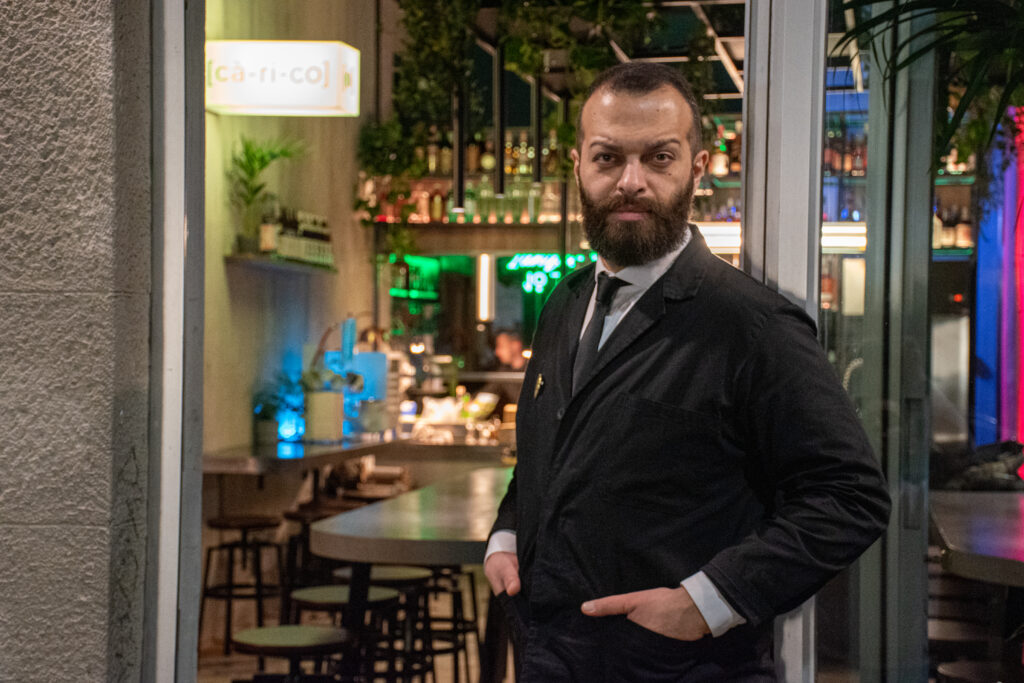
When you talk to him together you perceive his wisdom. He knows how to be humble and international at the same time, despite his young age. Today Domenico Carella is the result of his Lucanian origins and his many experiences abroad, which have shaped him over the years. There has been a lot of talk about him and his Carico Milano, the cocktail bar he opened in the Navigli area, but we believe that the same will be done with his latest project. It's called Cans or Kegs and he told us about it in detail.
Hi Domenico, what are your origins and where did you start from? Is it true that you have training as a chef?
I was born in 1984 in Bernalda, a small Lucanian village of around 10 thousand inhabitants which was the birthplace of the family of director Francis Ford Coppola. Since I was a child I have been passionate about cooking and, at the age of 15, when my brother celebrated his eighteenth birthday in our country farmhouse, I was fascinated by this movement of people. I decided that I wanted to organize something like this every day when summer arrived. So, at just 16 years old I prepared sandwiches, cocktails and played music and, after family and friends, groups of people began to arrive. Thanks to the success achieved, we developed the pizzeria offer, opened a summer ballroom and continued to grow until we reached the structure it is today. It's called Senso Farm and it's a 10-hectare farmhouse: a family dream, cultivated with my father and my brother who still manages it.
When did you decide to become a bartender? Why did you feel the need to go abroad?
I was very satisfied with the feedback obtained with Senso Farm but I wanted to open a business in a residential area, to be able to work even in the winter season. In those years I discovered that I had a gluten intolerance and so I chose to work in the world closest to cooking. In 2010 I opened Glam Lounge Cafè in Fernandina, the first place that forged me in the world of professional bars. From then on I tried to improve myself, always self-taught, until I achieved, in 2013, the victory in the Bari stage of the first edition of the Campari Barman Competition. I reached the final, where I placed fourth out of six and where I realized I had a big gap: English. I therefore decided to accept consultancy to open a terrace in Umberto Bombana's 8 ½ restaurant in Shanghai, also managing to do an excellent job as PR & Manager. After a year in China, in which I managed to obtain a nomination for the Bartender of the Year award for That's Shanghai magazine, I flew to London, for Galvin Brothers and for Accor Group, taking care of the F&B and entertainment aspect of some hotel openings . Being the owner of the business I worked for when I was young, I had a managerial mentality that has always helped me over the years. Back in Italy, for a brief consultancy from Dry Milano, in 2018 I met one of the founders of Pirata Group, a group of three restaurants in Hong Kong for which I oversaw 8 openings in 10 months.
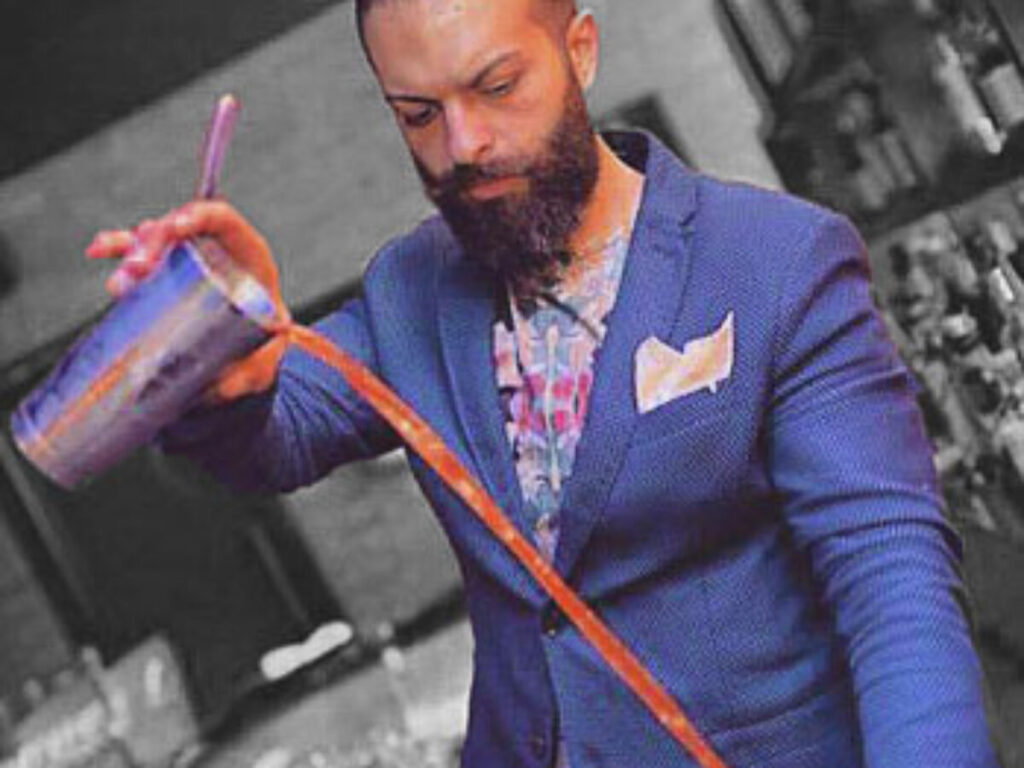
What did the East make you grow up in? How different is London mixing from ours?
Shanghai made me grow a lot from the point of view of personal relationships, both for the context and for the task that was asked of me. To answer the second question, I personally don't believe that there is anyone who is more advanced than anyone else: instead I believe that there are contexts with an audience more suited to experimentation, such as Milan. Carico itself, in any other large city in Italy, perhaps would not have had the same success. In Milan the public is ready to listen and experiment, while London is so large that whatever format you open you will always be able to find your audience. The average Italian bartender is much more knowledgeable about raw materials than anywhere else in the world, but is not very ready to work in a team, with a well-defined role. In Italy there is almost never a managerial figure but, rather, there is the owner who wants to do everything.
Why did you choose to return to Italy? How has Milan changed in the years you have been abroad?
At the end of 2018-beginning of 2019, the political situation in Hong Kong was starting to deteriorate due to relations with China and I therefore decided to come to Milan. First I did a consultancy for the beverage and process engineering part for Langosteria and then for the Operations section at Aimo and Nadia. One day, while I was in via Savona, I met the former owner of the place where Carico is now who said he wanted to sell and I made him an offer to my friend Lorenzo Ferraboschi. Having found the agreement, in just three months, from November 2019 to February 2020, we opened. Upon my return to Milan I found an almost stalemate situation. In this sense, 2019 went decidedly better and I also believe Carico moved more than a few things. Many have been inspired by our service, our cuisine and our being elegant and informal at the same time. It's a shame that 2020 went this way because I believe that Milan would have grown further, in our sector but also in many others.
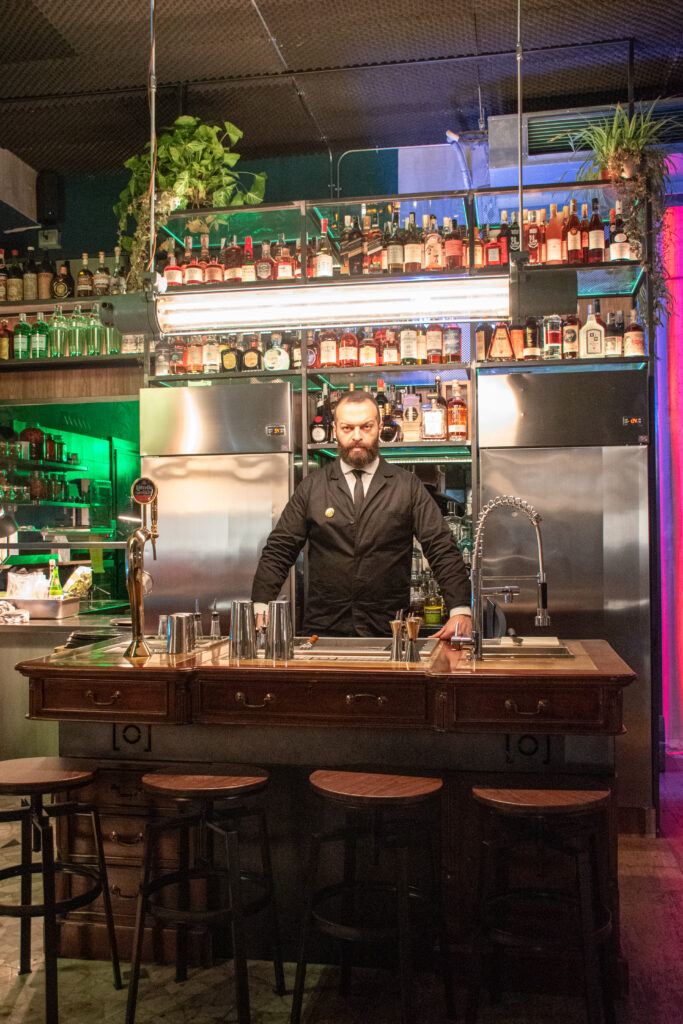
How would you define your cocktails? Which is your favorite?
My cocktails are deliberately not challenging. I try to give a particular lightness to every drink I prepare, both in terms of alcohol content and by using a quantity of sugars and acids that is not excessive. Many other aspects contribute to the final result such as the shape and size of the ice, type of glass, the thickness of the glass and much more. I don't have a single favorite cocktail. I like the Adonis, with vermouth, fino sherry and bitters, because I love fortified wines, and the Dry Martini, with Tanqueray, mancino dry vermouth, orange bitters and lemon peel, for its immediacy.
What are the most interesting personal projects you have developed over the years?
When I was in Shanghai I organized the first edition of the Italian Cocktail Week, an event in which all the cocktails were prepared only with Italian products. A Swedish friend of mine really liked the idea with whom I organized another event, the Ministry of Negroni. We served meatballs – his nation's specialty – and Negroni and the event are still doing so, hosting bartenders from all over the world. During my experience in Hong Kong, however, I developed the innovative concept of a British speakeasy with a 15-seat pub inside, from which you could access a hidden Indian restaurant with 300 seats. Together with Carico, the latter has still been my best work adventure also because we studied everything in detail. For example, before opening it we went to India to eat typical food for a month.
Can you tell us about COK, the latest project you launched?
The idea was born three-four years ago when I was in London, shortly before returning to Italy. I was thinking of making pre-mixed cocktails to distribute to clubs, in kegs and cans. So I got to work and, after searching for investors and some business trips, I managed to make it happen this year. It's called COK, an acronym for Cans or Kegs (cans or kegs) and we have a production plant in Cesenatico, where we make 3, 10 and 20 L kegs, containing five highball recipes and one flat. We chose to start with Spritz, Gin Gin Mule, Paloma, Gin Tonic, Americano Hibiscus and Negroni and then go on to develop others such as Martini, Daiquiri, Old Fashioned etc... With a single barrel, which we sell at the price of €180, yes they can decide to make 160 12 cl cocktails, 130 15 cl cocktails or 110 18 cl cocktails, for a total maximum of 300 drinks per hour. Almost all of the ingredients we use to make our cocktails are made by us, to have a unique product. We prepare soda - classic, grapefruit and hibiscus - bitters, ginger beer, vermouth, gins and a liqueur for the aperitif. We turn to any venue that needs to standardize and/or speed up cocktail service. Our objective is both to approach cocktail bars, which have large numbers and know they have to serve many cocktails of the same type, and to venues that intend to implement this type of proposal, such as restaurants and pubs, but do not have the need to include a bartender in your staff. A great advantage, which at first glance is not taken into consideration, is the fact that, by having a standardization of the costs of cocktails, it is much simpler to manage the economic accounts, not having the variable of the human factor. The other company involved, which allowed me to create everything, is the OAK company, which dealt with the development of brands, as companies such as Alce Nero and Cioccolati Italiani had previously done.
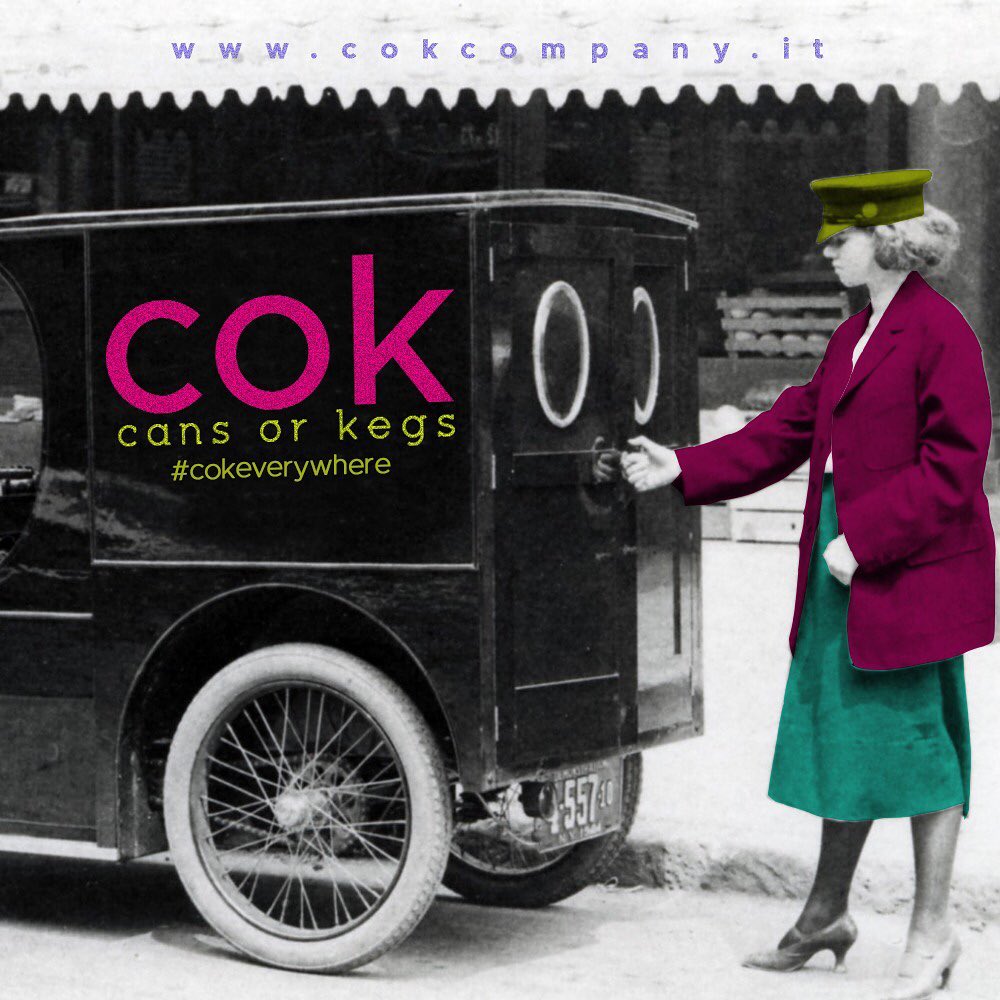
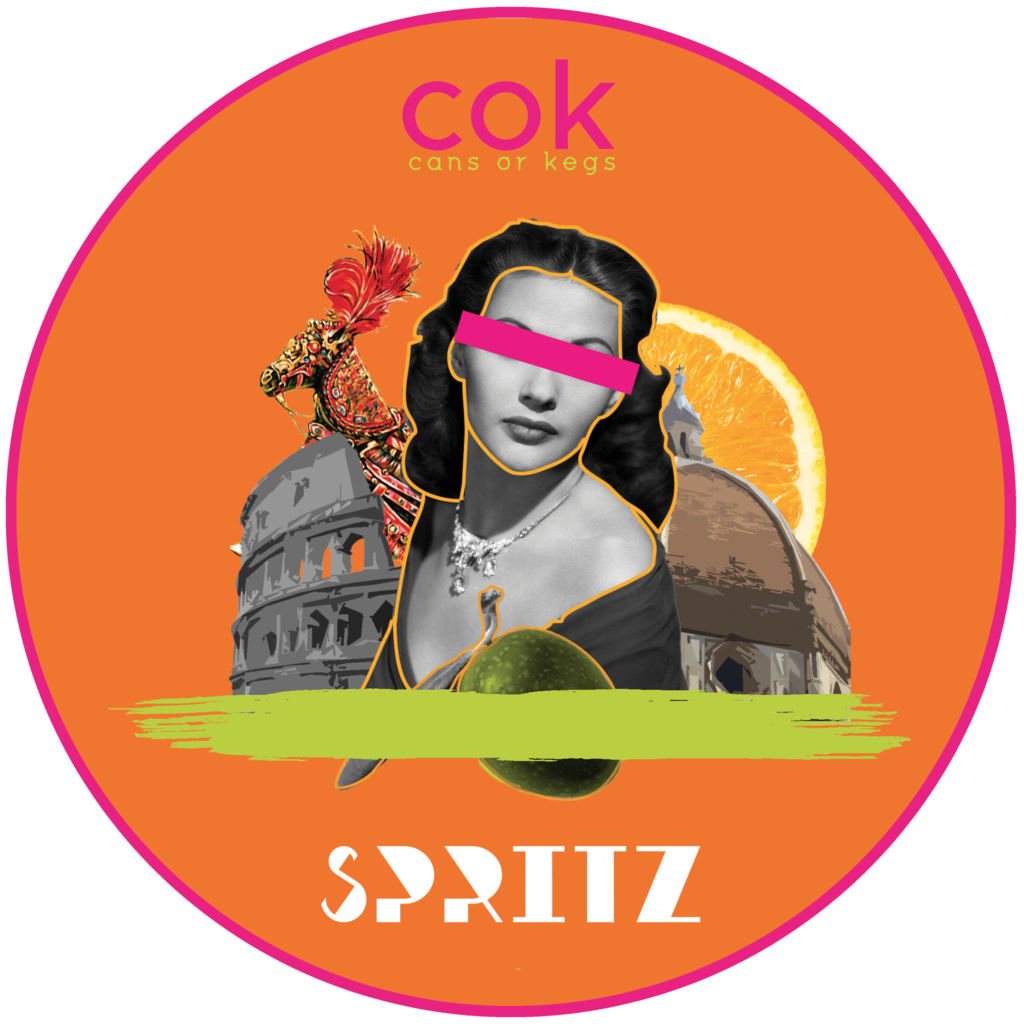
How can they be purchased? Have you thought about customizing and expanding the project?
We started distribution with several agents and in partnership with some retailers on the national territory. The drums can be purchased from us e-commerce, where you can also find all the details of the project and the individual drinks, for each of which we have decided to report the relevant story. We have activated a tailor-made service for locals who want an ad hoc proposal. If they contact us and ask us to create a tailored cocktail, we will satisfy the request. In addition to expanding the range of drinks we make, we have also created cans, which are already available on the market. They will be purchasable on the site, even by private individuals, as well as a specific line of 3-liter home kegs with domestic tap. A COK pop-up is also being studied, where we will serve our cocktails on tap.
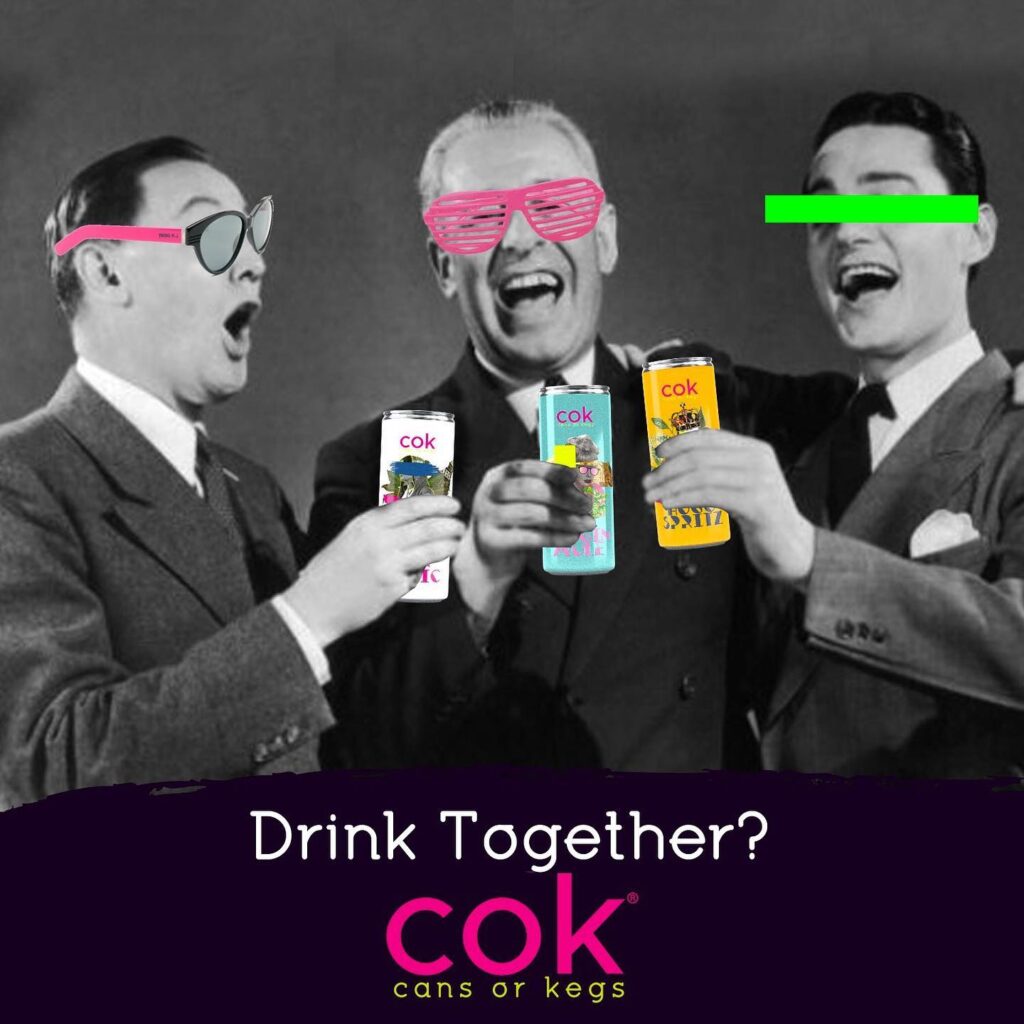 [:]
[:]
